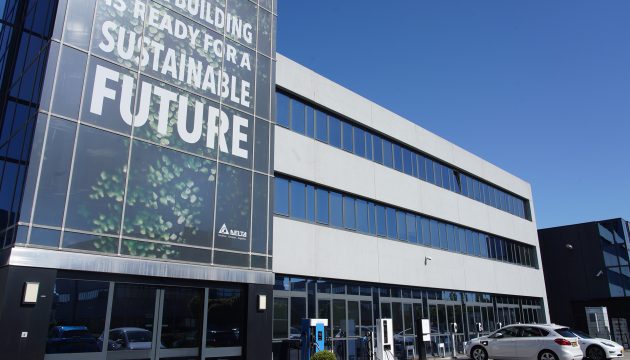Renovation and the road to net zero
The architects of tomorrow’s buildings have a clean sheet to incorporate energy efficient, sustainable and cost-effective innovations into their designs. But things are not so simple for existing buildings.
Around 85% of Europe’s buildings were constructed before 2001 and are mostly heated by fossil fuels. This diverse and historical building mix is responsible for 40% of total energy consumption and 36% of carbon dioxide emissions[1].
Making existing buildings more sustainable and energy efficient is a crucial part of efforts to make Europe climate-neutral by 2050[2].To bring about change, the European Commission has released its Renovation Wave Strategy, which forms a keystone of the European Union’s (EU) European Green Deal. This climate-related legislation aims to boost energy efficiency by renovating 35 million buildings across Europe by 2030, and a further 220 million by 2050.
While making homes and workplaces more sustainable and affordable, this planned contribution to Europe’s net zero efforts would also create green and local jobs.
[1] European Policy Centre — Is the EU’s building wave ‘fit for 55’?
Solving a complex issue
The task ahead isn’t as simple as replacing old technology with new. While there are a number of sustainable building innovations available, they are not always suitable for existing buildings, which were mostly constructed to be powered and heated by fossil fuels.
Another challenge relates to Europe’s building regulation standards, which differ from country to country and were not devised with sustainability in mind.
A major rebuilding program would prove too costly, so implementing energy efficiency measures will help the renovation wave get results.
Automation helps buildings use energy more effectively, by optimizing how and when resources are utilized.
Andy Joseph, Facility Engineer at Delta Electronics
Turning to technology: the smart choice
Innovations like building automation could be key to the renovation wave’s success, by leveraging the latest technologies to manage buildings efficiently and optimize performance[3]. A single digital platform can integrate multiple systems including Internet of Things (IoT) enabled energy, building management, LED lighting and indoor air quality to create the smart, healthy, safe and efficient buildings of tomorrow.
“Automation helps buildings use energy more effectively, by optimizing how and when resources are utilized,” says Andy Joseph, Facility Engineer at Delta Electronics.
Delta is demonstrating the power of such solutions at its EMEA headquarters in Hoofddorp in the Netherlands. The 35-year-old building has been renovated to generate, store and manage its own energy, integrating several smart systems including 16 on-site electric vehicle (EV) chargers for employees. The upgrade has received ‘very good’ BREEAM[4] (Building Research Establishment Environmental Assessment Method) certification for its sustainability credentials.
The Delta program of smart solutions is helping to transform buildings around the world. These range from green data center operations in the Netherlands to lighting control and occupancy detection at Manchester Airport in the UK.
[3] Delta — Building Automation
[4] BREEAM
Collaboration holds the keys to renovation success
But technology can only take us so far. Successful renovation of Europe’s building stock also depends on getting buy-in from building owners and users, by helping them understand the importance of adopting sustainable solutions and the long-term cost benefits of adoption.
While the up-front costs of renovation may appear daunting, switching to clean energy and using it more efficiently can help compensate for the costs over time, particularly when fossil fuel prices are in turmoil.
“More can be done to educate people about sustainability so they know how it can help them in the long run. Even simple headlines can help people understand what they can do to improve their homes or workplaces,” says Joseph.
Policymakers must create a framework that incentivizes building owners to adopt energy efficient measures, including decentralized, clean renewable power, smart power grids with demand management systems and electric mobility charging infrastructure.
Legislation and continued innovation in green technologies could help transform the buildings of the past into the buildings of the future. But realizing EU policymakers’ ambitious targets to renovate and remodel Europe’s buildings also rests on raising awareness of the need to go green, and providing a framework that incentivizes greater adoption of energy-efficient integrated systems.
The Renovation Wave Strategy aims to establish stronger regulations, standards and information on the energy performance of buildings, with the help of targeted funding and technical support to incentivize public and private-sector renovations[5].



